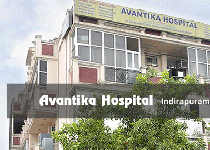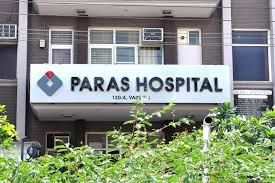Ms. Ekta Singh
Atlanta Mediworld - Multispeciality Hospital
Personal Statement
Our team includes experienced and caring professionals who share the belief that our care should be comprehensive and courteous - responding fully to your individual needs and preferences...read more
Doctor Information
Speciality
- Psychologist
Other treatment areas
- Counselling Psychologist
- Educational Psychologist
- Psychotherapist
- Relationship Counsellor
- Child Psychologist
Education
- MA - Psychology , Delhi University , 2008
- M-Phill Psychology , Rajasthan University , 2014
- B.Ed , Haryana University , 1995
- C.I.G , Delhi University , 2007
- ECCE , Delhi University , 2001
- B.A. Psychology , Delhi University , 1994
Past Experience
- Training at Sir Gangaram Hospital
- Trainee at RML Hospital
Languages spoken
- English
- Hindi
- Punjabi
Professional Memberships
- CIMBS DELHI
- Certificate In Guidance & Councelling
- Early Childhood Care Education
- Hypnotherapy ,Dream Analysis
Clinic Location
Plot No. NH-01, Sector-14, Atal Chowk, Vasundhara
Clinic of Dr. Ekta Singh
| Clinic's Name | Fees |
|---|---|
| Atlanta Mediworld - Multispeciality Hospital | ₹ 1,000 |
| Avantika hospital indirapuram | ₹ 1,000 |
| Bansal Poly Clinic | ₹ 1,000 |
| Paras Hospital | ₹ 1,000 |
Book Clinic Appointment with Ms. Ekta Singh
Atlanta Mediworld - Multispeciality Hospital
Avantika hospital indirapuram
Paras Hospital
Read what people are saying about Ms. Ekta Singh
Question and Answers
Sadiq
male • 41 Year Old • Apr 15, 2020 • Kolkata
I am 41 year old. I have a problem of anxiety and over thinking. It was develop due to high acidity in my stomach and I felt like something is very bad with my stomach d ...read more
Ekta Singh
5 years ago
First stop negative thought. Do not feel negative about your health stray calm n do exercise .consult personally for detail.
Yy
male • Apr 14, 2020 • Churu
Sir I got 72 in 10th and 81 in 12th I preparing for need but I am not scoring good in my coaching when I go to coaching a person whom I know he scored in 10th 93 and 88 ...read more
Ekta Singh
5 years ago
you need not to compare and don't get demotivated .have faith on you and your efforts for good results .study according to your comfort without comparing with others
Surojit Das
male • 26 Year Old • Apr 13, 2020 • Kolkata
How many days or year do I need to take amazeo od 100 tablets? I don't know i'm suffering from schizophrenia or not. Please tell me doctor how many days do I need to tak ...read more
Ekta Singh
5 years ago
it's totally based on condition of your health how severe your problem is or how you deals with it and what is the progress of your recovery and how much efforts are you ...read full answer
Anjani Kumar Singh
male • 49 Year Old • Apr 13, 2020 • Delhi
I am 49 year old and suffering from anxiety disorder for last one year. I have been given ciplar la 20, fludex 20 and clonafit 0.25 (1/2 tablet bd) for three weeks. Afte ...read more
Ekta Singh
5 years ago
First thing, you need not to stop medicine by your own without doctor advise. Do breathing exercises and relax follow a healthy routine. Consult me personally for relaxa ...read full answer
Aasim
male • Apr 11, 2020 • Vapi
Hello I was diagnosed with hypertension and tachycardia hear was 108 in ecg but I never felt any palpitation before that the bp was diagnosed in random checking my age i ...read more
Ekta Singh
5 years ago
Do some breathing exercises and stay calm and follow a healthy routine. Consult a psychologist for counselling time to time.





